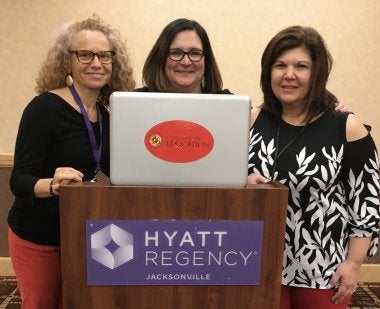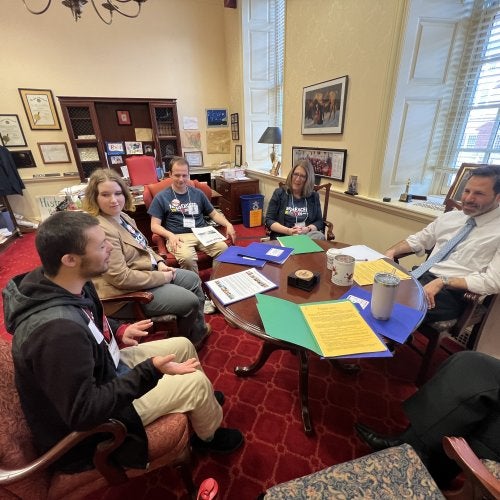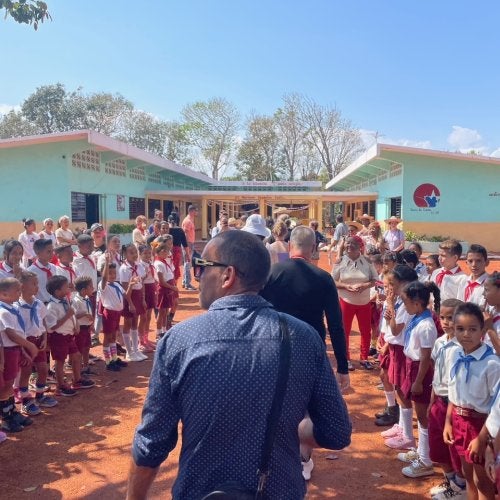
Tracy Dunheimer, Leslie Gettier, Debbie Lewin and Karen Rehder, elementary team Professional Development School coordinators in the College of Education’s Department of Teaching and Learning, Policy and Leadership, presented a session describing the Collaborative Post Observation Protocol (CPOP) to a group of 30 attendees at the National Professional Development Schools Conference in Jacksonville, Florida, on March 15.
The CPOP process is being implemented by the TLPL residents and supervisors in the Elementary Program. The process, adapted from the 2012 work of The National School Reform Faculty Harmony Education Center titled a Self-Guided Tour of Critical Friends Groups, promotes peer reflection of classroom lessons.
“At its best, the traditional post-observation conference is a one-on-one discussion of a lesson that occurs between a university supervisor and a resident. At its worst, it’s a time for the resident to relax while the supervisor takes the responsibility for delivering the lesson analysis,” Gettier said. “Through collegial conversation with one’s peers, the CPOP process honors and prioritizes time for deep reflection, diversity of thought and critical problem solving during the post-observation conference. This job-embedded professional development allows preservice professionals the opportunity to share and to clarify common values.”
The Process
Prior to the observation, the residents who are being observed share their lesson plans with their peers in the school. During the lesson observation, the supervisor alone records the data, along with observations and comments on the residents’ teaching performance and the success of the students. After the formal observations, two to five residents meet with the supervisor and the observed residents to review the lesson, study the work generated by the students, and ask clarifying questions. The supervisor does not lead this discussion but only builds on the comments that are made by the observed residents’ peers.
According to the supervisors at UMD, as well as the PDS coordinators who have participated in the CPOP process, the program’s advantages include: 1. the ability to self-assess one’s on teaching performance, 2. extended practice using the “academic language” of the teaching profession and 3. the development of an individual teaching style through the analysis and self-selection of the suggested teaching moves and practices.
Professional development is at its most effective when it is job embedded. Through their participation in CPOP, residents learn within the context of their own classrooms instead of a one- size- fits- all -model of professional development. The CPOP process promotes the confidence of all participating interns as they gain experience in making sound judgments about their own teaching practice.



